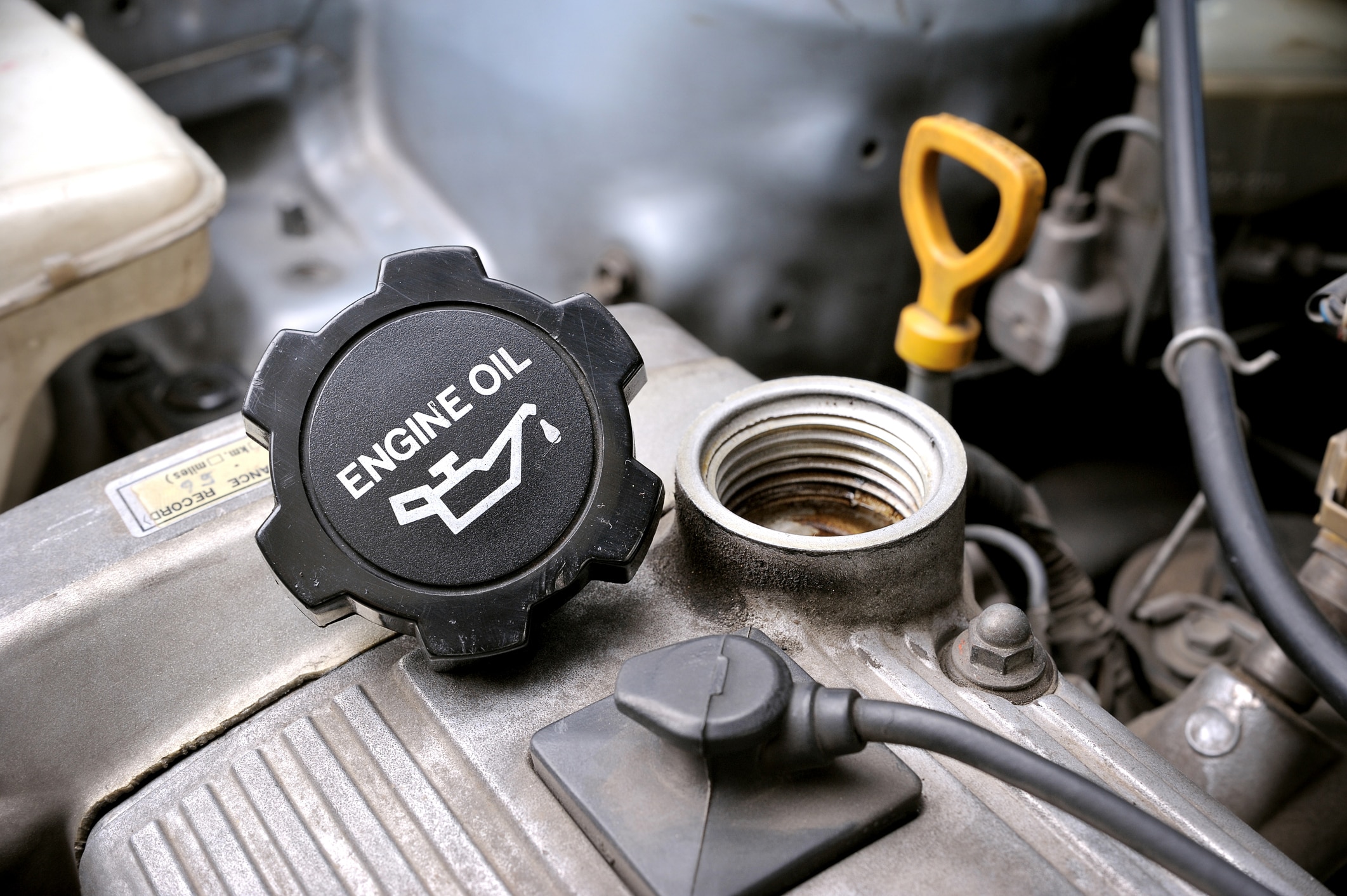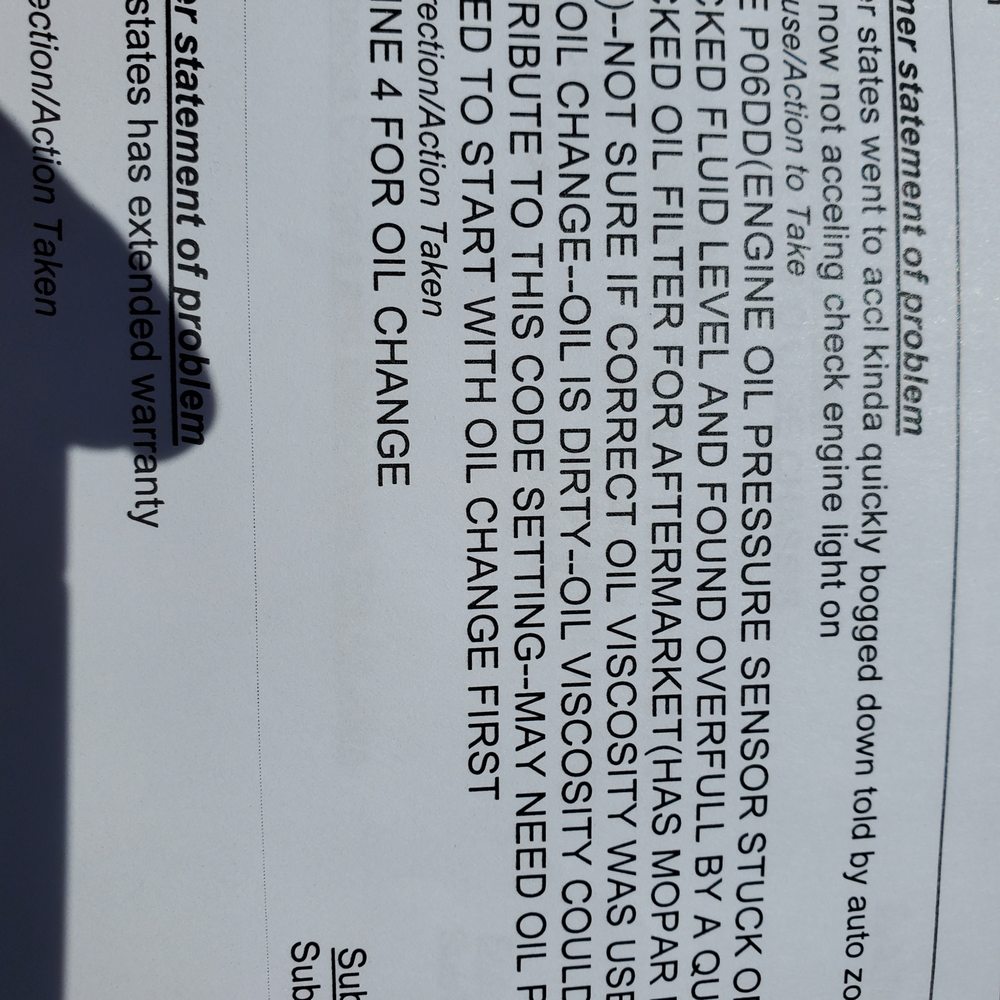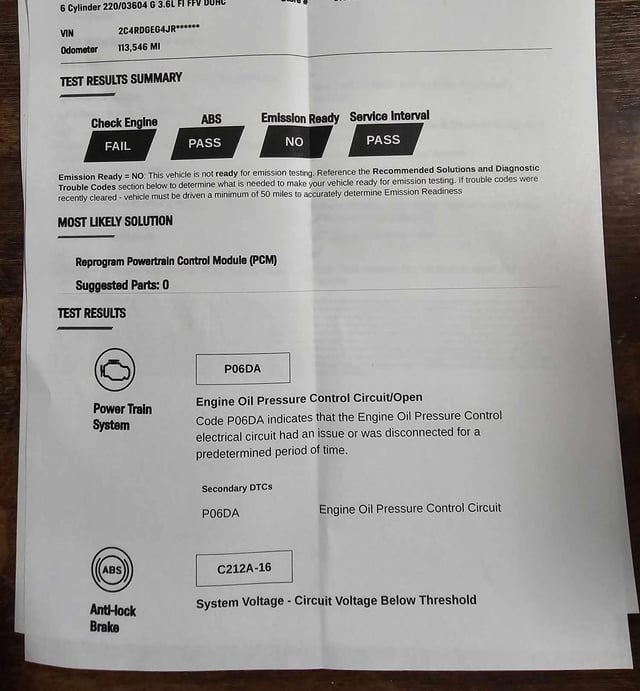If you hear grinding, clunking, or knocking noises from your engine, your engine may have been damaged from low oil, resulting in metal-on-metal contact. These unusual sounds indicate a lack of lubrication in the engine, which can lead to irreversible damage and costly repairs.
Additionally, backfiring, hissing, popping, and knocking are other signs of engine damage caused by low oil levels. It is important to address these symptoms promptly to prevent further harm. Not only does low oil levels damage the engine, but it can also lead to overheating as oil helps carry heat away from the engine.
Therefore, it is crucial to stay vigilant and regularly check your oil levels to avoid potential engine damage.
Warning Signs Of Engine Damage From No Oil
If your engine runs low on or completely out of oil, it can cause severe damage. It’s crucial to be aware of the warning signs of engine damage from no oil, so you can detect issues early and prevent catastrophic failures. Below are some warning signs that indicate potential engine damage due to low or no oil.
Oil Pressure Light
When the oil pressure light on your dashboard illuminates, it indicates a drop in oil pressure. This light is a crucial warning sign that should never be ignored, as it signifies potential engine damage from insufficient lubrication. If you notice the oil pressure light come on while driving, immediately pull over and turn off your engine to prevent further damage.
Odd Smells And Sounds
If you hear grinding, clunking, or knocking noises from your engine, it signals potential damage from metal-on-metal contact due to inadequate lubrication. Additionally, unusual smells like burning oil or metal can indicate severe engine damage and should be addressed promptly.
Engine Overheating
Low oil levels can lead to engine overheating, as oil plays a critical role in dissipating heat from engine components. If you notice your engine temperature gauge spiking or steam coming from the hood, it could be a sign of engine damage from low oil. It’s crucial to address engine overheating immediately to prevent further damage.
Common Consequences Of Low Engine Oil
Low engine oil can lead to various detrimental effects on your vehicle’s engine. Understanding and recognizing these consequences can help you take necessary action to prevent severe damage to the engine. Below are some of the common repercussions of low engine oil:
Change In Engine Noise
If you notice any unusual sounds such as grinding, clunking, or knocking noises coming from your engine, it could indicate metal-on-metal contact due to insufficient lubrication. These sounds should be addressed promptly to prevent potential engine damage.
Oil Consumption
Low engine oil levels can lead to increased oil consumption as the remaining oil may have to work harder to lubricate the engine components. Constantly monitoring the oil level and addressing any significant drop can help prevent excess oil consumption.
Low Oil Pressure Causes
Insufficient oil in the engine can lead to low oil pressure, which can negatively impact the engine’s performance. This can result in reduced lubrication and inadequate cooling, potentially leading to overheating and engine damage.
Buildup Of Engine Sludge
When the engine operates with low oil levels, the oil can degrade more rapidly, leading to the buildup of engine sludge. This sludge can restrict the flow of oil and lead to increased friction and heat, potentially causing damage to engine components.
Effects Of Running An Engine Without Oil
Running an engine without oil can lead to severe damage. Signs of engine damage due to low oil include unusual sounds like grinding or knocking, as well as engine overheating. It is important to address these issues promptly to prevent further harm to the engine.
Introduction To The Topic
An engine running without oil can have severe consequences on its performance and longevity. Lack of lubrication can lead to increased friction, overheating, and potential damage to vital engine components. Understanding the effects of running an engine without oil is crucial for maintaining the health of your vehicle.
Temperature Comparison With Oil Vs. No Oil
Without proper oil lubrication, an engine can experience significantly higher surface temperatures compared to when it is adequately lubricated. The absence of oil to reduce friction can lead to parts rubbing against each other, generating excess heat.
Impact On Surface Temperatures
Surface temperatures of an engine running without oil can rise rapidly, risking the integrity of various engine parts. Overheating due to lack of lubrication can cause metal components to expand unevenly, potentially leading to warping or other irreversible damage.
Conclusive Thoughts
Ensuring your engine has an adequate supply of oil is essential for preventing damage and maintaining optimal performance. Regular oil checks and changes are key to prolonging the life of your engine and avoiding costly repairs in the long run.

Credit: www.autotechiq.com
Identifying Engine Damage Due To Low Oil
If you’ve neglected to check your engine oil levels, you may be wondering if there are any telltale signs of damage caused by running your engine with insufficient oil. In fact, there are several indicators you can look out for to determine whether your engine has experienced damage due to low oil levels. Identifying these signs early on can help you take the necessary steps to prevent further damage and costly repairs.
Unusual Engine Sounds
One of the top indicators of engine damage due to low oil is unusual sounds. If you hear grinding, clunking, or knocking noises from your engine, chances are your engine is running without enough lubrication, resulting in metal-on-metal contact. These sounds can be quite distinct and may be accompanied by a decrease in engine performance or power. If you notice any of these sounds, it’s crucial to address the issue promptly to prevent further damage to your engine.
Signs Of Ruined Engine
When your engine is running low on oil, it can lead to a variety of issues that indicate engine damage. Some symptoms of a ruined engine include:
- Backfiring: Unburnt fuel ignites in the exhaust system rather than the combustion chamber, causing loud pops or bangs.
- Hissing: A hissing sound may indicate a leak in the engine, which can result in decreased oil pressure and damage.
- Popping: Similar to backfiring, popping sounds occur as a result of unburnt fuel igniting prematurely.
- Knocking: Engine knocking is often caused by pockets of burning air-fuel mixtures that burn independently, rather than being ignited by the spark plug.
These sounds may be accompanied by decreased performance, misfires, or reduced fuel efficiency. If you notice any of these signs, it’s important to have your engine checked by a professional as soon as possible to assess the extent of the damage and determine the best course of action for repairs.
Recovery Of Engine From Low Oil
While running an engine without sufficient oil can lead to significant damage, it is possible for the engine to recover if the issue is addressed promptly. Here’s what you can do to help your engine recover:
- Check the oil level: Begin by checking the oil level and adding the appropriate amount of oil if it’s low. Ensure you use the correct type and viscosity of oil recommended by the manufacturer.
- Perform an oil change: If your engine has been running with low oil for an extended period, it’s advisable to perform an oil change. This will help remove any contaminants and replenish the engine with fresh, lubricating oil.
- Monitor engine performance: After addressing the low oil issue, monitor your engine’s performance closely. Keep an ear out for any unusual sounds and pay attention to any changes in power or fuel efficiency. If you notice persistent issues, it’s advisable to have your engine inspected by a qualified mechanic.
Remember, prevention is always better than cure. Regularly checking your oil levels and following the recommended maintenance schedule for your vehicle can help avoid potential engine damage caused by low oil levels. Taking proactive measures can save you from costly repairs and ensure the longevity of your engine.
Symptoms Of Engine Running With No Oil
Running an engine with no oil can lead to severe damage, often indicated by loud clunking, knocking, or grinding noises. These sounds signify metal-on-metal contact due to insufficient lubrication, potentially causing irreversible harm to engine components like rods and bearings.
Addressing low oil levels promptly is crucial to prevent further engine issues.
Loud Clunking, Knocking, Grinding Noises
When your engine oil is running low, it stops lubricating the engine components. When these parts are no longer well-oiled, they cause loud clunking, knocking, and grinding sounds. This can cause your rods to break, which will give off the knocking sound from underneath. These noises are clear indicators that your engine is running without enough lubrication, leading to metal-on-metal contact and potential damage.
Risks Of Rod Breakage
When your engine runs without oil, the lack of lubrication can cause your rods to break. Rod breakage is a serious issue that can lead to catastrophic engine failure. The connecting rods in your engine play a crucial role in transferring power from the piston to the crankshaft. Without proper lubrication, the excess friction can cause the rods to snap, damaging other engine components in the process. This can result in expensive repairs or even the need for a complete engine replacement.
Symptoms Of Low Oil Levels
Aside from the loud clunking, knocking, and grinding noises, there are other symptoms to look out for if your engine is running with little to no oil. These symptoms include:
- Engine overheating: Without adequate lubrication, the friction between the moving parts within your engine can generate excess heat, leading to overheating.
- Oil pressure warning light: The oil pressure warning light on your dashboard is designed to alert you when the oil pressure is low. This warning light should not be ignored, as it indicates a problem that requires immediate attention.
- Increased oil consumption: If you find yourself constantly adding oil to your engine, it may indicate that there is a leak, or your engine is burning oil due to insufficient lubrication.
- Unusual exhaust smoke: If you notice thick, blueish smoke coming from your exhaust, it could be a sign of oil burning in the engine, which can be caused by low oil levels.
- Poor engine performance: As the engine components suffer from friction and lack of proper lubrication, you may experience a decrease in overall engine performance, including reduced power and acceleration.
In conclusion, running your engine without enough oil is a recipe for disaster. The symptoms mentioned above, such as loud clunking, knocking, and grinding noises, should never be ignored. Regularly checking and maintaining proper oil levels in your engine is crucial for its longevity and performance. If you suspect your engine is running with low oil or any other issues, it is recommended to consult a professional mechanic for an inspection and necessary repairs.
Checking Engine For Damage From No Oil
Introductory Paragraph
Checking Engine for Damage from No Oil: It is crucial to inspect your engine for signs of damage if you suspect low or no oil levels. Detecting engine damage early can prevent costly repairs down the line.
H3 heading: Knocking or Rattling Noises
Knocking Or Rattling Noises
Paragraph
Unusual noises like knocking or rattling emanating from your engine can indicate potential damage due to low oil. These sounds suggest metal-on-metal contact, which can lead to severe issues.
H3 heading: Detection of Metal in Oil
Detection Of Metal In Oil
Paragraph
Inspecting the oil for metallic particles is another way to determine engine damage from low oil. If you notice shimmering specks in the oil, it could signify internal metal component wear and potential damage.
H3 heading: Burning Oil Smell
Burning Oil Smell
Paragraph
Another red flag indicating engine damage from no oil is a distinct burning oil smell. If you detect a strong odor of burnt oil, it could signal overheating components due to inadequate lubrication.
Assessing Engine Damage Due To Low Oil Levels
Assessing Engine Damage due to Low Oil Levels
Inspection Of Metal Wear And Tear
When an engine operates without enough oil, it causes excessive friction and heat, leading to metal wear and tear. Inspecting the internal parts of the engine for signs of damage, including scoring or scuffing on the metal surfaces, provides crucial insights into the extent of the damage.
Long-term Damage Potential
The long-term potential for damage due to low oil levels is significant. Continual operation without proper lubrication can lead to irreversible harm, such as bent or warped metal components, which can be expensive to repair.
Indications Of Wear From Direct Component Contact
Direct component contact in the absence of sufficient oil lubrication can cause specific indications of wear. Observable signs may include loud clunking, knocking, or grinding sounds, signaling potential damage to crucial engine components.

Credit: www.jaguarhinsdale.com
Faqs On Engine Damage Without Sufficient Oil
Frequently Asked Questions on Engine Damage Without Sufficient Oil
Damage Indicators Due To No Oil
One of the top indicators of engine damage due to low oil is unusual sounds. If you hear grinding, clunking, or knocking noises from your engine, your engine may run without enough lubrication, leading to metal-on-metal contact. Some noises that a faulty engine will cause are backfiring, hissing, popping, and knocking. These sounds could mean problems inside the combustion flow. Engine knocking, for instance, happens when there are pockets of burning air-fuel mixtures that burn on their own instead of being caused by a spark plug.
Driving Distance Without Oil
Over time, driving without sufficient oil may result in irreversible damage, such as warped or bent metal parts, which can be costly to repair. But the dangers of driving with low oil levels go beyond just damaging your car’s engine. Oil also helps to carry heat away from the engine.
Timeframe For Engine Damage
When your engine oil is running low, it stops lubricating the engine components. When these parts are no longer well-oiled, they cause loud clunking, knocking, and grinding sounds. This can cause your rods to break, which will give off the knocking sound from the engine.

Credit: www.tiresplus.com
Conclusion
If you suspect engine damage from low oil, listen for unusual sounds like grinding or knocking. These noises indicate metal-on-metal contact, leading to potential long-term issues. Addressing low oil levels promptly can prevent costly repairs and ensure your engine’s longevity and performance. Regular maintenance is crucial.
Read More:


